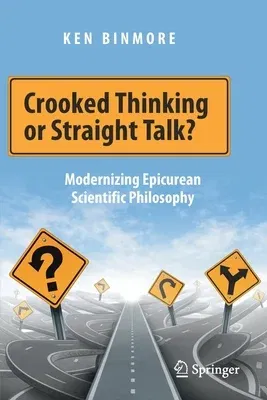Why can't we think straight about the big issues that face our society?
Why are we taken in by the phony arguments of populists and scammers?
Where are the philosophers hiding when we need them to tell us what
makes sense?
They are hiding because they have nothing to say. The airy-fairy answers
offered by writers of footnotes to Plato were wrong two thousand years
ago, and they are still wrong now. All this time, we should have been
listening to a different but equally venerable branch of matter-of-fact
philosophy pioneered by the much-maligned philosopher Epicurus. His
ideas were suppressed in ancient times as heretical, but the development
of the theory of games and decisions makes it timely for those of us who
care about science to revive his style of thinking-not just about the
world around us but about ourselves as well. The price of transferring
our allegiance to Epicurus and his modern followers is that we can no
longer enjoy the luxury of being told what we want to hear. It would be
nice if we were really equipped with a hotline to a metaphysical world
of transcendental ideals, but the truth is that we are just the flotsam
left behind on the beach when the evolutionary tide went out, and we
have to get real about what will and will not work for our imperfect
species before it is too late.
This book is an attempt to point the way. It has no equations and very
little jargon; nor does it pull any punches, either in explaining how
game theory works or in exposing the follies of famous metaphysicians.


